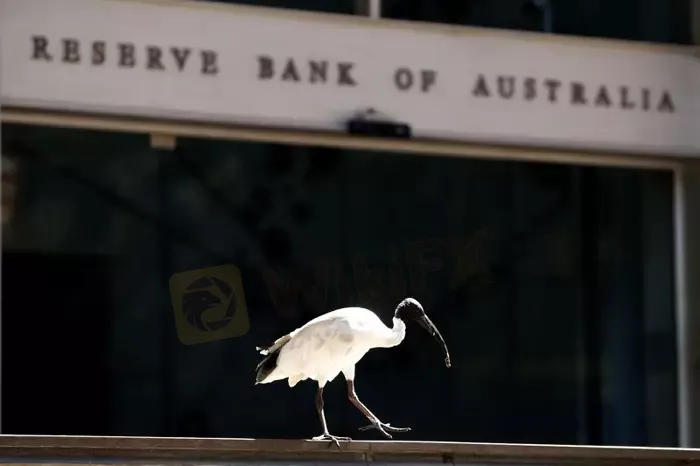简体中文
繁體中文
English
Pусский
日本語
ภาษาไทย
Tiếng Việt
Bahasa Indonesia
Español
हिन्दी
Filippiiniläinen
Français
Deutsch
Português
Türkçe
한국어
العربية
Australia’s central bank warns economy to slow sharply as inflation soars
Abstract:Australia’s central bank on Friday warned inflation was heading to three-decade highs requiring further hikes in interest rates that would slow growth sharply, making it tough to keep the economy on an “even keel”.

In its quarterly Statement on Monetary Policy, the Reserve Bank of Australia (RBA) jacked up its forecasts for inflation, downgraded the outlook for growth and foreshadowed an eventual rise in unemployment.
Yet even with further increases in rates, inflation was not expected to return to the top of its 2-3% target range until the end of 2024, pointing to a long period of pain ahead.
“It is seeking to do this in a way that keeps the economy on an even keel,” said RBA Governor Philip Lowe in the introduction to the 66-page statement.
“The path to achieve this balance is a narrow one and subject to considerable uncertainty.”
The central bank has already raised its cash rate four months in a row, taking it from an emergency low of 0.1 to a seven-year high of 1.85% and is flagging more to come.
“The Board expects to take further steps in the process of normalising monetary conditions over the months ahead, but it is not on a pre-set path,” said Lowe.
Markets see rates reaching 3.0% by Christmas and peaking around 3.30% in April next year.
The hawkish outlook reflects the fact policy makers have been badly wrong footed by inflation which has surged on the back of rising costs for energy, food and construction.
The RBA has had to lift its forecast peak for headline inflation to 7.75%, when as recently as May it had tipped 5.9%.
Core inflation is seen topping out at 6% by the end of this year and then declining only gradually to 3% by late 2024.
Lowe said these high levels risked getting built into wage- and price-setting behaviour, though so far longer-term inflation expectations had remained anchored to the 2-3% range.
Forecasts for economic growth this year were slashed by a full percentage point to 3.25%, while 2023 and 2024 were trimmed by around a quarter point to 1.75%.
“A higher cost of living, rising interest rates and declining house prices are expected to weigh on growth and spending,” said Lowe. After a bumper 2022, house prices are now on the retreat with Sydney seeing the fastest falls in 40 years.
The bank has also been surprised by the strength of the labour market, which saw unemployment hit a 48-year low of 3.5% in June. The RBA now see the jobless rate falling to 3.25% by the end of this year, before rising slowly to 4% by late 2024.
Annual wage growth is expected to pick up to 3.0% this year and 3.6% next, though that would still lag inflation. Wages could grow 3.9% in 2024 which would be the fastest in many years.
All these forecasts are based on the assumption that interest rates rise ti around 3% by the end of this year, and decline a little in 2024.

Disclaimer:
The views in this article only represent the author's personal views, and do not constitute investment advice on this platform. This platform does not guarantee the accuracy, completeness and timeliness of the information in the article, and will not be liable for any loss caused by the use of or reliance on the information in the article.
Read more

RM570,000 Lost in a Gold Trading Scam in Malaysia
In a distressing case of financial deception, a retired female teacher in Malaysia lost RM570,000 of her personal savings and pension to a gold trading investment scheme.

Many Social Media 'Investment Gurus' Are Scammers Preying on Malaysian Traders
Social media platforms have become breeding grounds for scammers posing as investment gurus, exploiting the growing interest in forex and cryptocurrency trading among Malaysians. Fraudulent "financial experts" often create the illusion of legitimacy by offering enticing stock analyses and promises of high returns.

Arumpro Capital Ltd Faces Regulatory Setbacks as CySEC Withdraws CIF Licence
The Cyprus Securities and Exchange Commission (CySEC) has officially withdrawn the Cyprus Investment Firm (CIF) licence of Arumpro Capital Ltd. The decision was finalised during a CySEC meeting on 11 November 2024, marking another chapter in the firm's ongoing regulatory challenges.

Webull Expands Trading Services to Japan via TradingView
Webull launches in Japan, offering low-cost trading for U.S. and Japanese securities via TradingView. Start trading with investments as low as $5.
WikiFX Broker
Latest News
Tokyo Police Arrest 4 for Unregistered FX Trading Scheme
BSP Shuts Down Uno Forex Over Serious AML Violations
ACY Securities Expands Global Footprint with South Africa Acquisition
Rupee gains against Euro
WikiEXPO Global Expert Interview: The Future of Financial Regulation and Compliance
DFSA Warns of Fake Loan Approval Scam Using Its Logo
Consob Sounds Alarm: WhatsApp & Telegram Users Vulnerable to Investment Scams
CySEC Revokes UFX Broker Licence as Reliantco Halts Global Operations
GCash, Government to Launch GBonds for Easy Investments
Bitcoin ETF Options Get Closer to Reality with CFTC Clarification
Currency Calculator


